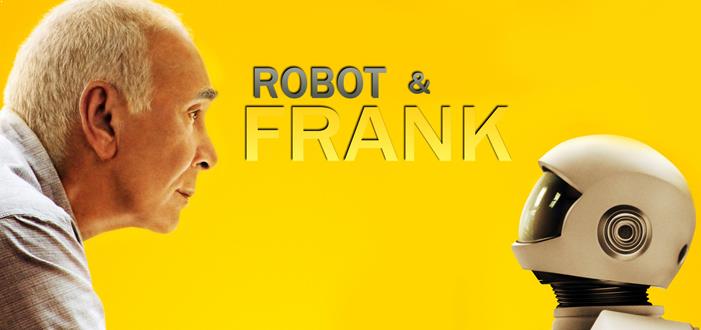
Robot and Frank
In a charmingly finished story, we are introduced to the need for unconditional love that forms the bedrock of every human life. Or at the very least our ideal of a necessary validity to our existence. And this comes in the face of having to deal with modern technology, like inanimate intelligence that can act as cyphers for emotions but at the end of the day exist only to serve and to obey, not to reciprocate an organic feeling of having meaning and value while breathing on this lonely planet.
Frank the protagonist doesn’t get this hint. And it’s referenced that he never has in his life. The family he created it seems was really just a sideshow attraction to his main raison deter: theft. To be more technical, high end jewelry burglary, where the only people who get hurt are the insurance companies. But now in the twilight of his time, he is a disoriented and forgetful man in upstate New York, aimlessly searching to eat at his favorite haunt that closed years ago.
This is why his son, who he practically abandoned because of his jail stints, brings him a robot. At first Frank is defensive about needing the help around the house, and with his mental shape. Before he would just lay around with a book on his chest, barely able to even eat cereal because the milk spoiled. But now, with Robot, Frank eats healthy, he exercises, and he even concocts burglaries.
Does the Robot allow Frank to violate the law? Why wouldn’t he? The robot feels ostensibly to be an assistant, when really, it is more about being a slave. And the slavery enables the master to direct the possessed however he sees fits. Organically then, as Frank’s mental health immediately improves, he returns to his de facto status of being a burglar.
Clearly his craft is the only thing he was ever passionate or fond of. Clearly the fact that he elects to use robot for his passion versus for some higher ends, like devotion to the family he loosely associates with, or to some charitable support, demonstrates the inner workings of a man who, as his son confronts, is an “egotistical prick”. We must appreciate, therefore, the type of individual that is keen on repeatedly breaking the law. It was not simply about the money, nor about the excitement. It was about the feeling of having power.
This inner lust for not simply being disobedient, but being dominant, reveals itself in the most subtle manner with Frank. But what other conclusion is there to justify this character’s personhood, but that which seeks not to win but to own and be master of? We never really learn why Frank sacrifices his life to jewel thieving, but we can see that it provided him some salvation for his incessant want of self-assurance and self-satisfaction with himself. In other words, put simply, Frank is a narcissist that found his fix. And his creative use of robot only cements this point.
The ending is touching as it reminds the audience that he had love all along, he just failed to appreciate it because the love had to come from him.
Grade: A-

